SLLA Crash Course
SLLA Crash Course
Approaches for Success
Wafa Hozien
Rowman & Littlefield
Lanham Boulder New York London
Published by Rowman & Littlefield
A wholly owned subsidiary of The Rowman & Littlefield Publishing Group, Inc.
4501 Forbes Boulevard, Suite 200, Lanham, Maryland 20706
www.rowman.com
Unit A, Whitacre Mews, 2634 Stannary Street, London SE11 4AB
Copyright 2016 by Wafa Hozien
All rights reserved . No part of this book may be reproduced in any form or by any electronic or mechanical means, including information storage and retrieval systems, without written permission from the publisher, except by a reviewer who may quote passages in a review.
British Library Cataloguing in Publication Information Available
Library of Congress Cataloging-in-Publication Data Available
ISBN 978-1-4758-2784-2 (cloth : alk.paper)
ISBN 978-1-4758-2785-9 (pbk. : alk. paper)
ISBN 978-1-4758-2786-6 (electronic)
 The paper used in this publication meets the minimum requirements of American National Standard for Information SciencesPermanence of Paper for Printed Library Materials, ANSI/NISO Z39.48-1992.
The paper used in this publication meets the minimum requirements of American National Standard for Information SciencesPermanence of Paper for Printed Library Materials, ANSI/NISO Z39.48-1992.
Printed in the United States of America
For Isra, for always being there, for always making me smile, and making this happen;
For my mother and father, for the strength they give me; and
For my children, for your understanding.
Thank you all for your support through all these years.
Contents
SLLA Crash Course : Approaches for Success is a wonderful resource for those preparing to take the School Leaders Licensure Assessment (SLLA) or those assisting the preparation of others to take the SLLA. This comprehensive reader-friendly guide provides users with a wealth of information, strategies, and useful tips that will increase ones readiness to successfully complete the SLLA.
There is a significant difference between preparation and readiness. Preparing for the SLLA does not guarantee your readiness to successfully complete the exam. College and university programs across the country enroll and graduate candidates from their principal licensure programs prepared but not ready for the SLLA or success as a school leader.
During my tenure at the National Association of Secondary School Principals (NASSP), I was privileged to deliver many presentations to groups of principals. I frequently asked them this question, How did you get to be as good as you are? Their responses always followed the same pattern, regardless of the state or region of the country: learning on the job, willingness to take risks, mentors, trial and error, and feedback. Seldom did a person respond that their preparation program was a factor in their current success. To add perspective to these thoughts, I often ask my physician, dentist, and accountant how their preparation program impacts their daily practice, and their responses clearly state that their preparation is instrumental in their current practice. This is an unfortunate reality for those preparing for the SLLA without the benefit of practical experience as a school leader.
I had the pleasure of participating in the development of the original Interstate School Leaders Licensure Consortium ( ISLLC ) Standards in the late 90s, cochaired the development of the Educational Leadership Policy Standards (ISLLC 2008) , and chaired the Educational Leadership Constituent Council (ELCC) for ten years. Professional standards development and application contributes to making better principals, a precursor to making principals better. I saw the impact that the ELCC Standards , the program version of the Professional Standards for School Leaders , had on increasing the quality of principal preparation programs. The latest version of the standards, Professional Standards for Educational Leaders (2015) , reflects the continuing evolution for the profession. Each new iteration of the standards clearly echoes the changes in the art of the practice and increases the expectations for the profession and the stakes for those planning to enter the field of school leadership.
High-stakes testing is a tool that the policy community uses to ensure competence by practitioners. The SLLA is a high-stakes test that serves as a barrier to entrance in the profession. While specific details of administration and scoring vary from state to state, the SLLA is typically taken prior to any significant practical experience.
What are the success factors that can increase your readiness to successfully complete the SLLA? Quality preparation certainly increases the opportunities for success. SLLA Crash Course : Approaches for Success is a quality preparation tool. I am impressed by the content. From the focus on the Professional Standards for Educational Leaders (2015 ), to the structure of the SLLA exam and how the exam is scored, the author provides useful information on approaching multiple choice responses, constructed-response questions, effective use of time, and approaches and tips. Practice tests are included in addition to a constructed-response practice tool. This book should be required reading for anyone preparing for the SLLA.
Research clearly indicates that principal quality is a major factor in school quality. In an ever-increasingly complex world, school principals have to adapt to the changes that confront every community and school. The quest to make better principals begins with a quality preparation program, a rigorous clinical experience, and successful completion of the SLLA. SLLA Crash Course : Approaches for Success serves to minimize the lack of experience in preparing for the SLLA. We know that experience is the best teacher, but absent experience, let this book be your best teacher and coach in ensuring your successful completion of the SLLA and opening the gateway for your entrance into the profession.
Richard A. Flanary
President, Flanary Educational Consulting, and former Deputy Executive Director for Programs & Services, the National Association of Secondary School Principals (NASSP)
If you have this book in your hand, you are, most likely, looking to take the School Leaders Licensure Assessment (SLLA). That, potentially, means you are an aspiring school leader. There are some important components to being a school leader outlined by a group of school officials called the Council of Chief State School Officers (CCSSO). These components or Interstate School Leaders Licensure Consortium (ISLLC) Standards that this exam is based on are explained throughout this book for you to understand and help you achieve your goals.
It is helpful to understand the overarching themes on which the SLLA is built before we get into the details of the standards. As introduced in the upcoming sections, the ten standards are based upon school administrative practices. So you have to think like a school principal, even though you might not be one yet. Put on your thinking cap and imagine you now have the responsibilities of a school leader. First and foremost you are concerned with the curricula and instructional leadership, then school community leadership, and administrative leadership. Before we get into the specifics that are covered on the SLLA, let us take a step back and understand the exam and what is involved in passing this assessment.
The SLLA is a licensure examination developed by the Educational Testing Service (ETS), with the ISLLC. This study book is designed to assist you in preparing to take this test by providing you with both general and specific information regarding test-taking and the SLLA itself.
What Is SLLA?
School leaders are entrusted with overseeing the education of students. Because their work is so important, the public demands that they be held to the highest professional and ethical standards. Legislation and licensing boards in many states have responded by establishing licensing programs to evaluate each potential principals relevant knowledge, skills, and abilities.
Next page
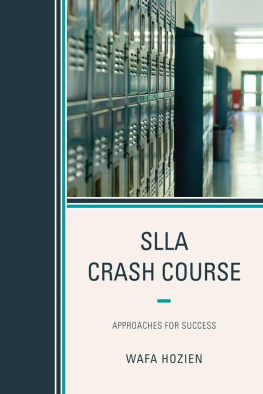
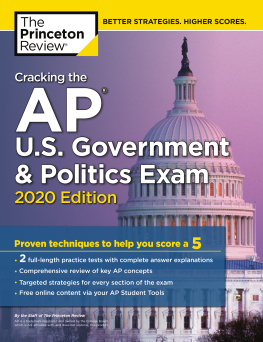

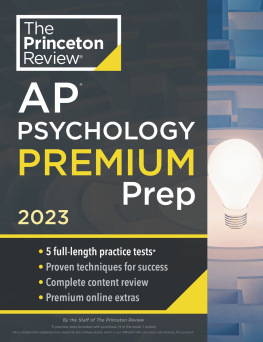
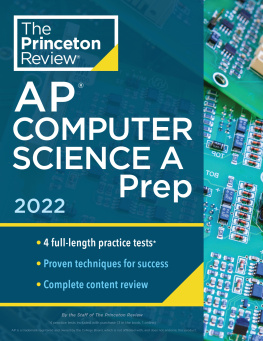
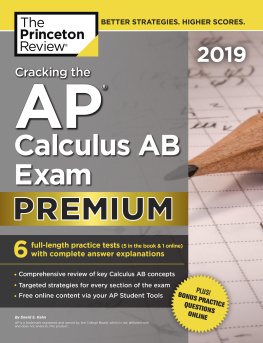
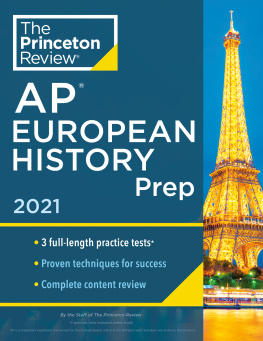
 The paper used in this publication meets the minimum requirements of American National Standard for Information SciencesPermanence of Paper for Printed Library Materials, ANSI/NISO Z39.48-1992.
The paper used in this publication meets the minimum requirements of American National Standard for Information SciencesPermanence of Paper for Printed Library Materials, ANSI/NISO Z39.48-1992.